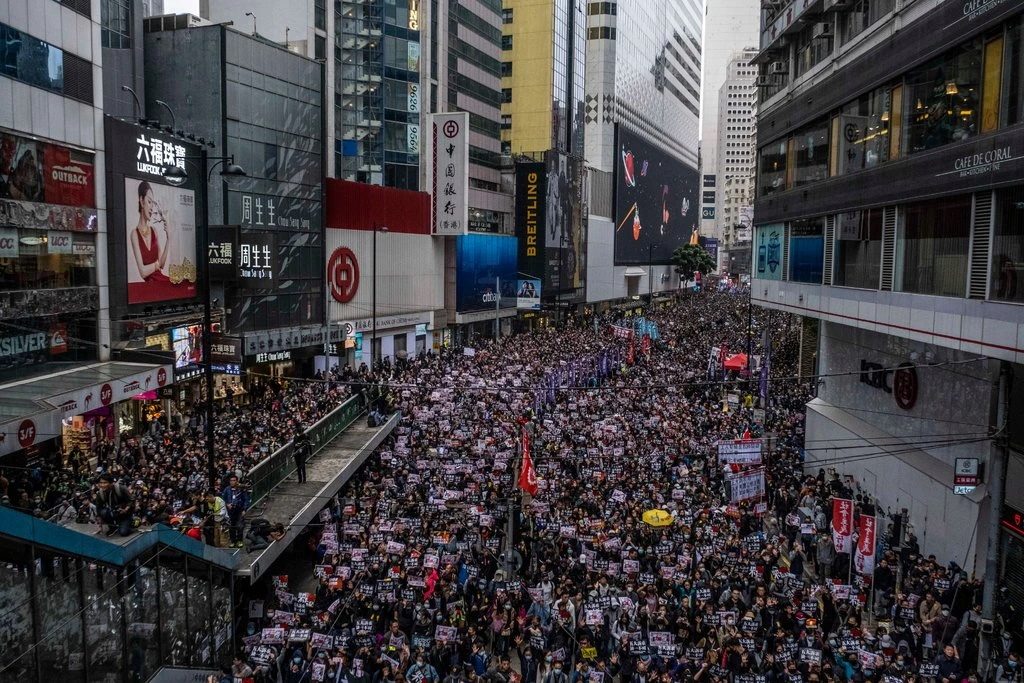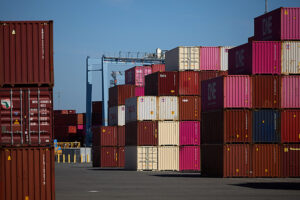Hong Kong Denies Entry to Human Rights Watch Director, Group Says

HONG KONG — The head of an international human rights group who had planned to criticize China’s growing global influence at an event in Hong Kong said he was barred from entry on Sunday in the latest sign of eroding freedoms in the city.
Kenneth Roth, executive director of Human Rights Watch, said he was turned away at Hong Kong International Airport after arriving from New York. Mr. Roth had planned to release a report by his group on Wednesday spotlighting repressive governments around the world, with a lead essay on what he described as China’s deepening assault on international human rights efforts.
The barring of Mr. Roth, an American, from Hong Kong follows similar entry bans on a handful of journalists and human rights observers in recent years, raising concerns in a city that has long prided itself on upholding the democratic values of freedom of speech and information.
Hong Kong has been roiled by more than seven months of antigovernment protests rooted in anger at the encroachment of Chinese power on the semiautonomous territory. The local government is under pressure from the authorities in Beijing to restore order as well as defend its image abroad.
“It’s sad testament to the deterioration in basic freedoms in Hong Kong that I would be barred less than two years later,” he said by email.
I flew to Hong Kong to release @HRW’s new World Report. This year it describes how the Chinese government is undermining the international human rights system. But the authorities just blocked my entrance to Hong Kong, illustrating the worsening problem. https://t.co/GRUaGh8QUb pic.twitter.com/iTHVEXdbwO
— Kenneth Roth (@KenRoth) January 12, 2020
He said officials told him he had been blocked for “immigration reasons.” The Hong Kong Immigration Department said it would not comment on an individual case. A Chinese government office that oversees Hong Kong and Macau did not immediately respond to a request for comment.
Hong Kong operates within China under a “one country, two systems” formula that promises the territory a high degree of autonomy, including independent courts, a free news media and extensive protections of civil liberties. It has traditionally been more welcoming to foreign journalists, scholars and human rights observers than the authorities in mainland China, who regularly bar entry and expel people over coverage of sensitive issues.
But in recent years, Hong Kong has been criticized for growing closer to the mainland in using immigration policy to bar those who have criticized the government or sought to discuss politically sensitive topics. Journalist organizations have also complained that the police have interfered with coverage of the protests, arresting reporters and hitting them with rubber bullets and pepper spray.
In 2018, the government expelled Victor Mallet, Asia news editor for the Financial Times, after he hosted a talk by the head of a since-banned political party that called for Hong Kong’s independence from China. The talk was held at the Foreign Correspondents’ Club, which regularly hosts speakers on various sides of prominent issues, but Beijing and local officials harshly criticized the club.
Matthew Connors, a photographer and professor at the Massachusetts College of Art and Design who had documented the protests, was denied entry in early January. He was arrested while documenting a demonstration in Hong Kong last year, but never charged.
The refusal to grant Mr. Roth access to Hong Kong came amid a sometimes violent protest movement in the territory, which has strained relations between the United States and China. President Trump signed legislation in November that authorized sanctions against Chinese and Hong Kong officials responsible for human rights abuses. At the same time, Mr. Trump has been trying to negotiate a trade deal with Chinese leaders.

The strife has also created tensions in the professional sports world. In October, the general manager of the Houston Rockets, Daryl Morey, posted an image on Twitter supporting pro-democracy protesters in Hong Kong, and LeBron James faced backlash for saying that Mr. Morey “wasn’t educated on the situation at hand.”
In December, China announced it would impose “sanctions” against several pro-democracy nonprofit organizations based in the United States, including Human Rights Watch.
Mr. Roth said he landed in Hong Kong at about 2:30 p.m. Sunday, and four and a half hours later he was on a return flight to Newark.
“This disappointing action is yet another sign that Beijing is tightening its oppressive grip on Hong Kong and further restricting the limited freedom Hong Kong people enjoy under ‘one country, two systems,’” Mr. Roth said in a written statement. “Concerned governments should take a firm stand against China’s creeping repression that massive numbers of people have protested against for months.”
![]()





